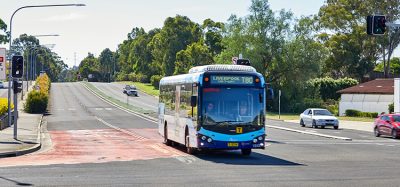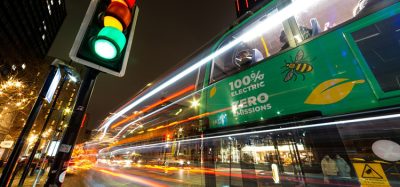A community-based approach to driving change in mobility
- Like
- Digg
- Del
- Tumblr
- VKontakte
- Buffer
- Love This
- Odnoklassniki
- Meneame
- Blogger
- Amazon
- Yahoo Mail
- Gmail
- AOL
- Newsvine
- HackerNews
- Evernote
- MySpace
- Mail.ru
- Viadeo
- Line
- Comments
- Yummly
- SMS
- Viber
- Telegram
- Subscribe
- Skype
- Facebook Messenger
- Kakao
- LiveJournal
- Yammer
- Edgar
- Fintel
- Mix
- Instapaper
- Copy Link
Posted: 2 October 2019 | Dr Paul Vorster - ITS South Africa | No comments yet
Dr Paul Vorster, CEO of Intelligent Transport Society South Africa (ITSSA), details the responsibilities of the ITS community in incubating positive change for the future of connected mobility.


The fourth industrial revolution is having a transformational effect on most sectors of industry and society, but few more so than mobility. We don’t have the luxury of reinventing the wheel, but thanks to technology, we can at least reimagine and reassess how it turns.
Transport is becoming smarter: 5G connectivity is multiplying the magnitude of devices in the Internet of Things; big data and cloud computing are delivering real-time answers; and machine learning and artificial intelligence are rapidly creating new avenues that were previously unthinkable within mobility.
The sector has become part of the ‘platform economy’, which in turn has introduced novel ways of connecting Mobility-as-a-Service solutions. The potential of our connected future was summed up by Ajit Pai, Chairman of the U.S. FCC, in this way: “Imagine a world where everything that can be connected will be connected – where driverless cars can talk to smart transportation networks and wireless sensors can monitor your health and transmit data to your doctor. That’s a snapshot of what the 5G world will look like.” With the the proliferation of data-driven services, that’s no longer a future that’s difficult to imagine.
Transport is becoming smarter: 5G connectivity is multiplying the magnitude of devices in the Internet of Things; big data and cloud computing are delivering real-time answers; and machine learning and artificial intelligence are rapidly creating new avenues that were previously unthinkable within mobility
Learning together
To enable this connected network, the transport industry will witness status quo disrupters being disrupted in turn – and with increasing frequency. This must be anticipated, but preparing for change and uncertainty is a challenging task. National ITS associations are amongst the stakeholders that must step up to the plate to help various players adapt in the face of rapid oncoming innovation and inevitable disruption. However, they will not always get it right and we must adopt a learning posture.
While the South African ITS industry shares similarities with other regions, it is fair to say it also has its share of unique challenges. One such key challenge is to facilitate a strategic conversation amongst stakeholders that is open ended and encourages a commuter-centric paradigm as opposed to the outdated modal-segmented model. Another key decision is to conduct much of its work through special interest groups (SIGs). These serve as multi-functional groups with a focus on interaction between functional areas, rather than on the functions per se.
To encourage collaboration and holistic thinking, one such group is the Special Interest Group Mobility 4.0, derived from ‘Industry 4.0’ and MaaS. SIG Mobility 4.0 was developed from earlier initiatives in areas such as big data and cyber-security. The group will focus on the implications affecting the transport industry as a result of the digital transformation caused by the fourth industrial revolution. Its aim is to make cities function in a smarter way, incorporating the existing ITS Standards User Group and acting as a primary strategic tool for the objectives of ITSSA in a changing environment.
The SIG on Road Safety will launch during a working session in Cape Town in the second half of 2019. Road safety was chosen to have an SIG because while the safe movement of people, goods and services is vital to the South African economy, the country witnesses approximately 14,000 road deaths annually. With the cost of crashes calculated at €8.5 billion per annum, there is a powerful business case for prioritising road safety.
SIG Road Safety will look at functional areas such as in-vehicle devices, advanced driver-assistance systems, road-side deployment, traffic management, law enforcement, and electronic vehicle identification, again with a focus on the interaction between the functional areas as well as the interaction with SIG Mobility 4.0.
Managing expectations
The ITS industry is very dynamic, with innovators and disrupters constantly pushing the envelope. New technologies should be developed to solve problems and the industry has to be wary not to develop solutions in search of problems.
Certain technology can sometimes appear overhyped, setting overly optimistic expectations that may not or cannot be met. For example, Huawei has previously predicted in its megatrends for 2025 that intelligent transport systems will connect people, vehicles and infrastructure, leading to zero congestion.
In other cases, these expectations can become reality sooner rather than later. Deutsche Telekom has launched Germany’s first 5G network, but it currently only works in two cities with a €900 smartphone. By the end of 2020, however, 5G coverage is expected in 20 German cities.
While encouraging innovation, it is part of the responsibility of national ITS associations to temper these promises of breakthroughs with real-world constraints, such as differing rates of adoption.
There are competitors aplenty, but the smart mobility paradigm requires a focus on collaboration. One area that needs better exposure during discussions on smart mobility is the policy framework and enabling environment. Developing cities that can be labelled ‘smart’ requires much more than a collection of cutting-edge and futuristic technologies; it requires the involvement of all relevant stakeholders, and this is where ITS associations have a critical role to play.
Biography
Paul Vorster has served as CEO of ITS South Africa since its establishment in 2001. He is a founder member of the ITS Africa Working Group, member of the ITS Policy Committee of the International Road Federation (IRF) and has served as Vice President of IBEC (the International Benefits, Evaluation and Cost Working Group). He is a passionate advocate for smart mobility as a subsystem for emerging smart cities. Based on his practical approach, Vorster has been invited to speak in multiple international forums, including at the United Nations Economic Commission for Europe (UNECE) Transport Committee, and at several ITS World Congresses and other international meetings.
Related topics
5G & Transport Communications, Intelligent Transport Systems (ITS), IoT (Internet of Things), Mobility Services
Issue
Issue 3 2019
Related organisations
Intelligent Transport Society South Africa (ITSSA)








